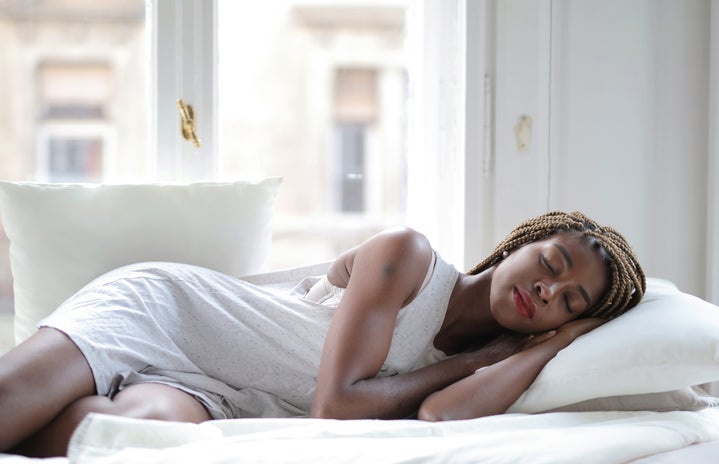I’m sure we’ve all had the experience of waking up from a nap feeling as if we just got hit by a bus or that it’s two hours later than we’d originally planned. I’m also positive that—although it’s more rare—you’ve woken up from a nap feeling energized and invigorated, perhaps even before your alarm went off. So, are naps good or bad?
In terms of benefits, a short nap is perfect to reduce stress and help you relax. Furthermore, they’ve been shown to improve mood and mental clarity, reduce fatigue, and enhance cognitive ability. On top of that, naps are a great remedy if you have trouble focusing, staying awake, or thinking. That’s not all either—In terms of benefits for productivity, controlled napping has been linked to memory enhancement, increased problem–solving ability, and efficiency. In fact, a 2008 study that compared getting more nighttime sleep, taking a nap, and using caffeine as ways to cope with the “afternoon hump” (a period of midafternoon sleepiness programmed into the circadian schedule), found that naps were the most effective. Plus, researchers have even concluded that napping two or three times a week can improve your heart health.
But sometimes, naps can have the opposite effect on people. For example, it isn’t rare for people to wake from prolonged naps with decreased cognitive abilities and increased fatigue. The explanation for this lies in something called sleep inertia. Essentially, sleep inertia is the feeling you get after waking up from a “bad” nap feeling groggy and disoriented. The cause? A sudden awakening during REM sleep in which your body is still processing high levels of melatonin (the sleep hormone). The frightening thing about sleep inertia is that it can occur regardless of whether you sleep for eight hours or for five minutes. As such, the groggy side effects people commonly complain about after a “bad” nap aren’t really because of the nap itself. If you’re now wondering, “how do I escape the effects of sleep inertia?”, the easy answer is try and limit your nap time to an ideal 15-20 minutes. Sleep inertia is something that builds up the longer you sleep, and if you nap for less than 20 minutes, you won’t enter REM sleep and will avoid the disorientation that comes with being forcibly awakened from REM sleep.
Another commonly cited negative effect of napping is that some people find that it hinders their ability to fall asleep at night. This is often a side effect of prolonged naps (more than 20 minutes), as taking a multi–hour nap will inevitably throw your circadian rhythm off balance. By napping efficiently, you can avoid the groggy feeling that occasionally emerges after a nap or the inability to sleep at night.
In short, naps are a complex science, and there’s no such thing as the “perfect” nap. Depending on the time of the day you chose to nap, the length of the nap, the duration you slept for the night before, and factors outside of your control—such as what stage of sleep cycle you’re in when you wake up—naps will have a different effect on you. The key to having a “good” nap that maximizes benefits while minimizing sleep inertia is to have a short nap. Specifically, it’s generally agreed upon that a nap should be no longer than 20 minutes (and preferably no more than 15 minutes). Also, naps are most effective in providing benefits between 2 to 4 pm, when the sleepiness that has accumulated throughout the day is at its peak—but this largely depends on what time you slept the night before and when you woke up.
Even so, it’s important to acknowledge that no amount of daytime naps can make up for inadequate nighttime sleep. So don’t forget to get in your recommended hours of sleep per night!


